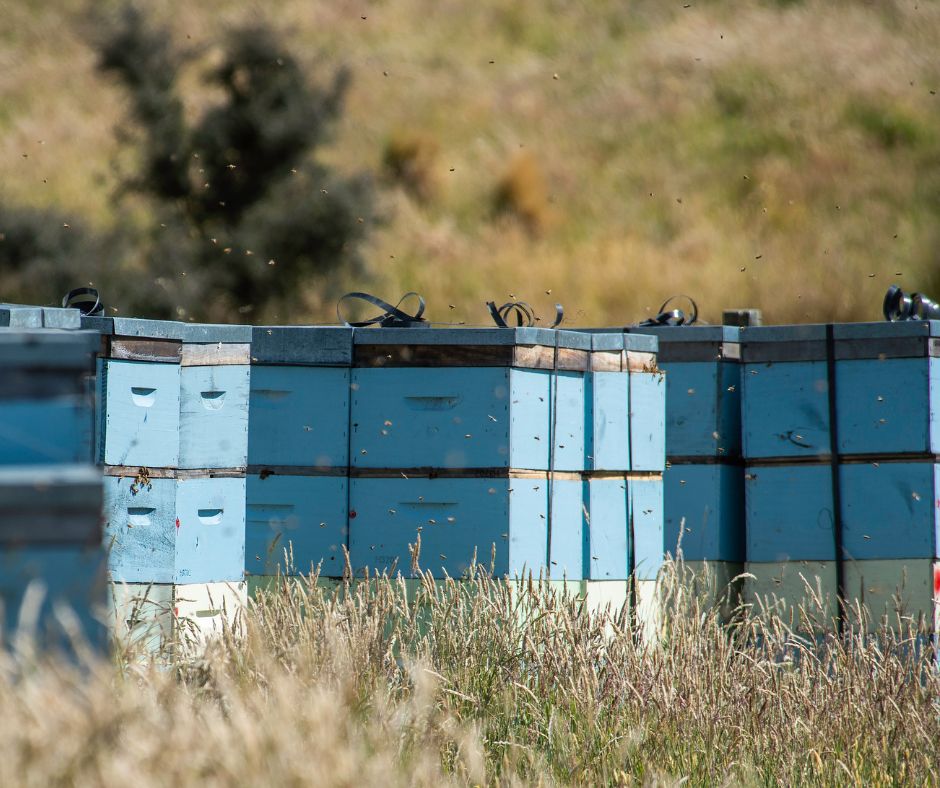The most recent studies of bee health from the winter of 2020 showed that 11.3% of colonies were lost in one year. This an unfortunate and grave statistic; there is a lot that needs to be done in the fight for climate justice to recover from the significant loss of bees in recent years. Genuine Mānuka honey cannot be produced if it isn’t for bees, so it is crucial for us as a civilisation to work together and create a planet friendly for all life.
Read ‘Our Bees And Their Role In Making Manuka Honey’, for more information on how bees make pure Mānuka honey.
Starting with small steps is essential to make big changes, which is where this blog will begin. This article will outline easy steps you can take as an individual to ensure you’re doing your part in the fight for bees. Everyone loves the delicious taste of pure Mānuka honey, and we shouldn’t deprive the world of this amazing natural sweetness when there are steps we can take to ensure there’s Mānuka honey for all.
Plant Trees That Flower On Your Property
It may surprise you, but bees have the ability to remember. When bees begin extracting nectar from flowers, they begin to undergo floral constancy. This refers to the action of seeking a particular flower during their foraging trips.
While trees do their part for the planet by providing oxygen, they also provide food for bees in the form of nectar. This is why it’s key for you to begin planting your own flowers and providing bees with another avenue of food if their usual floral constancy is no longer made available.
Planting Native Plants
Not all bees are made the same - specifically, honey bees. It may surprise you, but many honey bees are considered to specialise in the flowers they harvest from. Similarly, for the reason mentioned above, bees like constancy with the flowers they harvest from.
Several New Zealand flowers are endangered and require conservation and care. If you choose to plant native trees and reside in New Zealand, you will both increase the food available to bees and the number of native trees present in Aotearoa.
Don’t Be Afraid Of A Messy Garden
Although bees are commonly widespread in hives, there are several bees who are able to find shelter in debris. Everything from rotten wood and underground tunnels to dead plant stalks can have the capacity to nest bees. Mulch has even been a common garden feature that has seen bees take advantage of. Furthermore, during early Spring, bees will more often than not utilise the weeds for foraging.
Avoid Pesticides or Exterminators
Eliminating the use of pesticides and exterminators is a point that is fairly obvious, but it needs to be stated nevertheless. Particularly in Spring, when bees will swarm to create new colonies, they will sometimes appear in areas that are not conventional. These locations may include your place of work or backyard.
It’s tempting to call an exterminator to come and destroy the colony (and subsequently, the bees); however, there are more conscientious and sustainable methods of relocating the colonies. Calling a beekeeper or apiarist may give you a more bee-friendly opportunity to remove the hive from your premises. Instead of killing the bees and exacerbating the issue, you can be part of the solution to recovering the honey bee population.
Stay Up To Date With The Latest Bee Science and News
You taking the initial steps in ensuring you are protecting bees around you is an amazing start. However, there are several conservationist groups that provide far more comprehensive information on how you can further your influence in the fight for honey bees. Some of the most prominent organisations include:
- Project Apis m.
- National Wildlife Federation
- Xerces Society for Invertebrate Conservation
- Pollinator Partnership
- Bees for Development
Primal by Nature is a brand that prides itself on being eco-friendly and sustainable. Not only are we the only brand to offer a comprehensive range of pure Mānuka honey within a glass jar, but we also work closely with our partner Midlands Apiaries. Priding themselves on moving forward conscientiously, Midlands Apiaries operates extensive Research and Development programmes focusing on bee health, hive management, pollination optimisation and hive tracking and compliance.
Primal by Nature - Sustainably Providing 100% Pure New Zealand Mānuka Honey
Primal by Nature can deliver Mānuka honey from the rawest and primal regions in some of the most remote New Zealand locations. We are your one-stop shop for a sustainable and natural solution. Our Mānuka honey comes in a range of UMF™ strengths.
All Primal by Nature Mānuka honey arrives at your door in recyclable glass jars regardless of the level of MGO or UMF™. We believe that our pure New Zealand Mānuka honey must be the best and should be available to consumers in the same eco-friendly packaging.
Primal by Nature eliminates the confusion surrounding Mānuka honey UMF™ grading systems and standards. As a result, you will be made aware of the different grades and be confident in buying a product that reflects an environmentally conscious brand.
Taking Mānuka honey to the next level, every Primal by Nature glass jar contains a potent primal burst of nature. To taste Mānuka honey of this stature is to embrace nature itself. So take a look at our extensive selection of Mānuka honey products and become one with nature.





